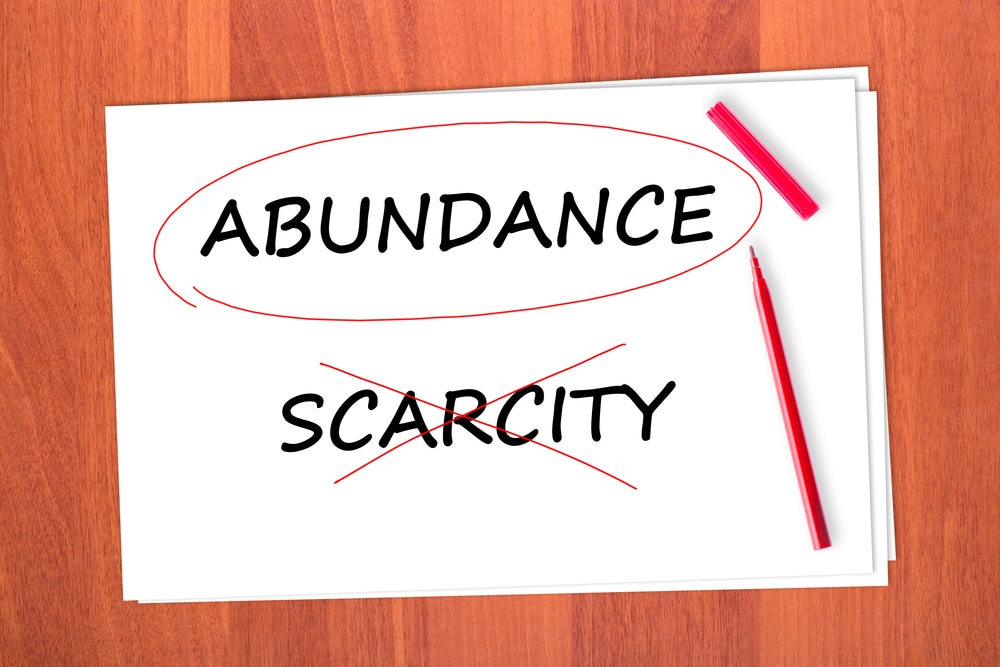|
Counselors and therapists once conceptualized grief as a linear process. It was meant to unfold in predictable stages: denial, followed by anger, bargaining, depression and, finally, acceptance. We used to think grief had a beginning, a middle, and an end. Grief experts think differently now. The grief model has considerably expanded over the last decade. While the above described experiences depict what many grievers encounter after a loss, we now know that the "areas" of grief are neither linear nor universal. What's more, grief has proven itself to be cyclical, free-flowing, and without an endpoint. Though our understanding of the grieving process has evolved, many of the grievers I see in therapy judge themselves harshly when their grief does not look or feel the way they think it should. They should feel more of this or less of that. They admonish themselves for moving forward too quickly; flagellate themselves for lagging behind. This happens even when I remind them that grief is both unpredictable and specific to the griever. Grievers will cling to the idea that, somehow, they are doing grief wrong--even though doing so makes them feel worse than they already do. It's normal, when faced with uncertainty, to yearn for order and predictability--both are associated with our sense of emotional safety. Yet telling ourselves we should feel something other than what we do feel is akin to tossing a boulder into the middle of a stream. It interrupts what would otherwise naturally flow toward its intended destination. Take Sylvia* for example. Silvia was 35 when she sought grief counseling to deal with the death of her beloved father. Sylvia and her father were so close everyone, including Sylvia, expected she would fall apart after his death. But that did not happen. In fact, Sylvia sought therapy because she was concerned about what she described as "a disturbing lack of emotion." We explored this together. When I asked Sylvia to tell me more about her father, her face lit up. She spoke at length about a robust, generous, sharp-witted family man. He was a present and engaged father to Sylvia and a wonderful grandfather to Sylvia’s two children--until he was diagnosed with early onset Alzheimer’s Disease. The diagnosis was followed by a rapid decline in physical and mental health, which sent the whole family into turmoil. Sylvia’s demeanor shifted as she described what it was like to watch the disease whittle away at her father. Just before his death, Sylvia's once-independent role model could no longer feed or bathe himself. He was unable to recognize a single member of the family he loved so dearly. Sylvia's dad was alive. But he wasn't really living. As I listened to Sylvia's story it occurred to me that the issue at hand was not a lack of emotion. It was the belief that her grief was supposed to occur in order. The sadness she expected would come after her father died actually took place long before his physical death. When death marks the endpoint to prolonged suffering, it is common for family members to feel some degree of relief. Rarely can they admit this without feeling guilty. So they don't talk about it all. This was the case for Sylvia. Therapy gave Sylvia the one thing she needed most: a safe place to speak her truth, even though it did not sound the way she expected it would. With time and therapy, Sylvia was able to make peace with her grief. It is when we are vulnerable that we are most worthy of patience and grace yet, for many, this is the time we are least willing to extend it. If you are telling yourself you should be anywhere other than where you are in this moment, I invite you to remember that grief is a natural and organic process that needs only to be witnessed and felt. It's okay to let go of grief-related expectations--they will only get in your way. Instead, trust your grief and yourself. Both are trustworthy. *All identifying information has been changed to protect patient confidentiality. Dr. Jill Gross is a licensed psychologist, therapist, and counselor. She offers grief therapy, divorce consultation, co-parenting support, and other counseling services in the Phinney Greenwood area of Seattle, WA. Having trouble trusting your grief? Schedule a free consultation to see how grief counseling can help you find the forward path.
2 Comments
People seek counseling or therapy to change what no longer works: careers, lifestyles, friendships, marriages. They’ve labored for months, years, sometimes even decades to make their jobs more appealing, their spouses more affectionate, their families more considerate. Exhausted from the fight, clients come to therapy hoping their therapist or counselor will join the effort. And we do. Just not always in ways our clients expect.
What brings people in the door is frequently not what keeps them there. What is initially described as a problem is usually the beginning of a solution. Jason*, a twenty-three-year-old, second-year medical student, was referred for psychotherapy by a psychiatrist from whom he originally sought antidepressant medication. He didn’t exactly sit on my sofa. He slammed himself against the back cushion and slid, pancake-style, until he was practically laying down and sitting up at the same time. When asked what brought him to therapy, he could barely lift his head to answer. “Depression” was the most he could muster. I probed further. From the time he was old enough to walk, talk, and cut his own steak, Jason was told he was destined to be a physician. For the entirety of his youth, his parents, both surgeons, conveyed to Jason that he had two post-college options: medical school or medical school. Jason was a gifted student to whom science and math came easily. So, after graduating from a prestigious college with a Bachelor’s degree in biology, Jason applied to medical school and was accepted. Off he went. There was only one tiny problem with this plan: Jason hated medicine. A classically-trained pianist, his true love was music. He wanted to play professionally. Because Jason knew his parents would never approve of this choice, he buried his love of music and forged ahead with the mandate to become a doctor. Though Jason’s presenting concern was depression, with time, it became clear that depression was merely a topical symptom: the real issue was Jason’s relationship with approval. He needed approval so desperately he was willing to pay for it with his life--literally. As he whiled the hours becoming more of the person his parents wanted him to be, he was slowly becoming less and less himself. By the time I saw him, he was merely a shell, his own narrative virtually indistinguishable from that of his parents. It was a long and difficult road but Jason eventually found his voice. As he did, the depression lifted. He mustered the courage to put his medical studies on hold and pursue music. His parents weren’t thrilled but, to his surprise, they hung in there. What’s more, Jason decided, on his own, that he would move in with roommates to lower his living expenses and support himself by teaching piano lessons. It wasn’t a king’s ransom but it was a living. At twenty-three, Jason was doing the unthinkable: he was becoming an adult. Jason clung to a medical career to protect both himself and his parents from the dilemma of having to choose their real-live son over their idealized version of him. The most difficult part of Jason’s journey was not abandoning a career he never wanted to begin with, but trusting that he was strong enough to withstand the discomfort of telling an authentic but unpopular truth. In so doing, he untethered himself from the core belief that his well being was contingent upon the approval of those he cared about. With the need for external validation no longer powering the engine, Jason was not only surviving; he was actually thriving! Jason’s story is not unique. For many of us, fear manifests as immutable obstacles we tell ourselves we cannot live with or without. We cannot leave the job that is giving us bleeding ulcers because we need the money. We cannot ask for what we want because our spouses will leave us. We couldn't possibly sell the house that is bankrupting us. Over and over, we plead with life to change in one breath while weaving stories that are designed to keep it the same in the other. It is not the obstacles themselves that keep us stuck, it is our relationship with the meaning we have imbued those obstacles with. Most obstacles serve a protective function. They shield us from our deepest fears and the dependencies that maintain them. They keep us at a healthy distance from what we are not yet ready to know or experience. We struggle to find a way out of suffering not because we don't have answers but because we haven't yet found the right questions. Had Jason and I focused solely on eradicating his depression, we would not have seen that the real issue was a dependency that was preventing him from knowing his own strength. We cannot succeed at removing the barriers to change unless we first understand and acknowledge their benevolent purpose. If you're on the cusp of making an important change and something appears to be holding you back, remember that you have chosen this obstacle for a reason. Try not to blame yourself here--there is no sense in heaping suffering on top of pain. Reminding yourself that you are the architect of your obstacles can be a way of offering hope that, when you are ready, you will draw up a different blueprint! How have you overcome obstacles in your life? Tell us about it in the comments section below. *Names and identifying information have been altered to protect patient confidentiality. Dr. Jill Gross is a licensed psychologist, therapist, and counselor. She offers grief therapy, divorce support, and other counseling services in the Phinney Greenwood area of Seattle, WA. Are obstacles getting in the way of you having the life you deserve?
Something strange is happening in Seattle. Mother nature appears to have gotten the memo, albeit a month later than the rest of the country, that Spring has arrived.
As I’m writing this, it’s a balmy 74 degrees outside, the gardens are in full bloom. Like earthworms after a good soaking, Seattleites are creeping out in droves from their bookstores and coffee shops to pay tribute to the one thing we all yearn for but cannot control: the sun. Closet mainstays of Gortex and fleece have been temporarily exchanged for tank tops and shorts. The Greenlake lawn is smattered with blankets and picnic baskets. Translucent limbs gently tip toward the golden orb that forsakes them for two-thirds of the year. Fellow park goers pass one another with chins held a little higher, smiles a little wider, freely spouting weather-related pleasantries, exchanging gleeful, knowing glances. It is as if everyone in the city is holding the same winning lottery ticket. While out walking today, I started thinking about why Seattleites go nuts when the weather is nice. A story came to mind about a man who immigrated to the United States from a poor, rural part of India. Upon his first trip to an American grocery store, the man fell to his knees and wept. When his companion asked why the man was crying, he replied, “Such abundance! How is one to appreciate anything?” Indeed, the first sunny day in Seattle nicely exemplifies how scarcity can beget tremendous gratitude. The city's residents savor every moment of sunshine because we know it won’t be long before it disappears. We resent the rain, yet we also know it is the prerequisite for the flowers and fruit trees that dazzle us come springtime. Life is the same way. When we are experiencing a long stretch of suffering or scarcity for which there is no scheduled ending, it is easy to get mired in dark emotions. Every human emotion comes with its own, unique script. Most commonly, when we are suffering, we feel hopeless which, for most of us, sounds like “I am trapped in a hole that is too steep to climb. I will be here forever.” These thoughts are pretty convincing. They seem real, but they are not true. Hopelessness is just like any other emotion, free to come and go, once fully permitted to exist. It is normal to resist suffering out of fear of being carried away by its undertow. In lieu of curious examination of our feelings, we often shame or judge ourselves for having them. Allowing space for dark emotions is not synonymous with succumbing to them. The opposite is true. The more we resist what we are feeling, the more likely our feelings will manifest in ways that don’t serve us (e.g., explosive rage, drinking or drug use, shopping, gambling, etc). In other words, we are fated to act out our feelings until we are ready to learn from them. Life is fraught with suffering. We cannot sidestep it altogether; we must go through it. Here are a few things to keep in mind as you inch your way forward:
Sometimes the lessons we are meant to learn from suffering require additional resources, such as a licensed psychologist, therapist, or counselor. If everything you’ve tried on your own doesn’t seem to be working for you, widen your circle to include a trusted professional. Your mental health is worth the investment! Have you found an effective way out of suffering? Tell us all about it in the comments section below! Dr. Jill Gross is a licensed psychologist, therapist, and counselor. She offers grief therapy, divorce support, and other counseling services in the Phinney Greenwood area of Seattle, WA. Scarcity got you down? Schedule a free consultation to find out how therapy or counseling can help you lead the life of abundance you deserve!
A friend and I were chatting the other day about relationships. After a season of self-prescribed abstinence from the online dating community, this friend (a bright, vibrant forty-something) decided to jump back in the game.
My comrade had recently met an attractive individual with similar interests, goals, and values. She had assumed, were this to happen, that she would be awash with positive emotion. She assumed incorrectly. Instead of bunnies, rainbows, and Oprah moments, my dear friend was wracking her brain for the myriad of ways something could go wrong in the relationship. Perhaps her date would see aspects of her life that are still under construction. Perhaps her affection for this prospective partner would be unreciprocated. Perhaps the whole thing would crash to the earth in a magnificent fireball. In other words, the very thing my friend thought would fulfill her was now the source of considerable discomfort. My friend’s experience is actually quite common. On the verge of accomplishing our goals, it is common for many of us to feel restless or agitated. Why does this happen? The answer is somewhat complex. Longing is an unconscious manifestation of scarcity, the pervasive belief that we are not enough and/or that we do not have enough. Scarcity is fueled by fear and self-doubt. These feelings come with a dialogue that usually begins with “what if” and ends in loss or catastrophe. These stories can feel so real sometimes, we start responding to them as if they are true. They are not. They are merely representations of emotions that are meant to come and go. When we are anxious or fearful, our bodies and brains are compelled to seek—sometimes obsessively—for the people, places, or things we think will deliver us from scarcity. We are seduced by the notion that the perfect partner, job, house, will be our one-way ticket out of painful feelings. The greater our fear, the more urgently we seek to quell it. The wiser mind knows this is a fool’s errand, but fear is an irresistible salesman. Seduced by the idea that deliverance is just one person, place, or thing away, we become consumed by thoughts of the future. In so doing, lose touch with what we are feeling in the present moment. I like to call this “the seeking trance.” When we find what we are looking for, the trance is broken, our love affair with “someday” abruptly ends, we are catapulted into the present moment, and the feelings we were attempting to avoid come rushing into consciousness. Suddenly, the object of our craving becomes someone or something we don’t trust. Online dating can be a sticky wicket for precisely this reason. Each profile is carefully crafted by an individual who has his or her own unique relationship with fear and scarcity. The result is a collective mass of fear-based energy that manifests in unanswered messages by individuals who proclaimed interest, promising first dates who mysteriously disappear, salacious electronic threads that never yield an in-person meeting. (Sidebar: no wonder my friend was feeling overwhelmed by fear—online dating is a veritable roller coaster of hope and disappointment!) The next time you sense urgency in the absence emergency, this is a cue to pause and inquire. Ask yourself what you are afraid of. When we give a voice to fear, we deflate its power. Name your fear(s) out loud. If a child experiencing the same fear approached you for reassurance, how would you respond? Would you judge or criticize this child or would you surround him or her with loving grace? I suspect you would do the latter, so offer this gift to yourself. Repeat this process as often as needed. Remember that fear and desire are opposite sides of the same continuum. To move from one end, we must lovingly attend to the other. When we really listen to our fear, when we respond to self-doubt with loving kindness, we inch closer to desire. Just as fear begets scarcity, desire beget abundance. When we act from a fearful place, our energetic field constricts, practically guaranteeing we will not find what we are seeking. When we act from a place of authentic desire, we make room for the things want to find us and, when they do, we are more likely to value them. Dr. Jill Gross is a licensed psychologist, therapist, and counselor. She offers grief therapy, divorce support, dating consultation and other counseling services in the Phinney Greenwood area of Seattle, WA. Want to have a richer, more satisfying online dating experience? Schedule a free consultation now!
Grief is a sneaky bugger. Like variegated yarn it weaves its way into our lives, resulting in subtle (sometimes not-so-subtle) changes in hue. While most of us expect to mourn death, divorce, or disease, we are confounded by loss that cannot be touched or researched in any scientific journal: that of innocence.
For me, it all started with Santa. I still remember the moment my older sister and I put the pieces together: one portly man, a magic sleigh loaded with presents, pulled by flying reindeer, shimmying down the flues of houses all over the world in one night? Ya. Right. And, hey, didn’t the handwriting on Santa’s thank-you notes bear a strong resemblance to our father’s? The look on our mother’s face when we confronted her with the case files merely confirmed the gig was up. I thought I would feel proud for solving the Santa mystery. Instead, I was disillusioned by the years of tooth money, chocolate bunnies, and carefully-filled stockings, not purveyed by magical figures from faraway lands, but by the two hands of my very real parents. I was too young to know it then, but this moment was the first pearl in strand of ideals that would eventually break apart as I got older. From birth until about age seven the part of our brain responsible for logic and reason (prefrontal cortex) is undeveloped. From age seven until approximately twenty-five, prefrontal synapses burgeon. As they do, our problem-solving ability advances and the idyllic lenses through which we view world are gradually replaced by realism. What no one ever tells us is just how emotionally difficult this process can be. Life chips away at our ideals until the pain of holding on to them is greater than the pain of letting them go. Here are the most commonly grieved ideals I have encountered in my work as a therapist:
The age at which we recalibrate our assumptions will vary according to our personal circumstances and degree of openness. Though its intensity eventually subsides, grief is often cyclical and ongoing. Life has an uncanny gift for shining light on the places that may always be tender. For instance, the childhood wounds we made peace with in early adulthood can be reawakened when we become parents. This can also happen when our children reach the age(s) we were originally injured. The next time you feel as if there has been a terrible mixup in the cosmic kitchen, ask which of the above ideals you may be struggling to recalibrate. Need help? Try scanning your internal dialogue for "shoulds" (e.g., “My parents should have been more responsive.” or “My relationship should have lasted."). "Should statements" are the expression of an unconscious wish to live more freely. Instead of telling yourself how things should have been or how they should be, remind yourself that everything you experience is divinely chosen for your healing and growth. Gently loosening the grip on idealistic assumptions allows us to make peace with what is. Dr. Jill Gross is a licensed psychologist, therapist, and counselor. She offers grief therapy, divorce support, and other counseling services in the Phinney Greenwood area of Seattle, WA. Struggling with something that didn't turn out quite the way you wanted? Schedule a free consultation to find out how therapy or counseling can help you find peace!
"You may write me down in history
With your bitter, twisted lies, You may trod me in the very dirt But still, like dust, I’ll rise." -Maya Angelou
Welp, we have a winner. And, technically, it isn't the majority's choice. The Seattle air was palpably heavy yesterday. Coffee shops and walking paths seemed a little emptier, faces looked little more somber, people were protesting downtown. I could practically hear the clicking of "Unfriend" buttons everywhere. I've lived through many elections, but this one has been, by far, the most divisive.
The turbulent emotional waters have left most of us searching for dry land. So, without further adieu, here some things to remember as you make your way shoreward: 1. Some of us are grieving. Roughly 48 percent of us are working through grief's five stages: shock ("Oh my god!"), denial ("This can't be happening. There must be some mistake!"), anger ("WTF?"), bargaining ("If only those swing state voters hadn't chosen a third party."), depression ("What do I tell my children? What is happening to my country?"), and, finally, acceptance ("Okay. Now what?"). It is perfectly normal and natural to grieve when outcomes are neither chosen nor desired. Name your feelings and speak them out loud, first to yourself. Give your grief the space and compassion it deserves. If you are not grieving, respect folks who are. 2. Some of us are celebrating. Those who voted for Trump did so either because they believed him to be the best person for the job or because they perceived him to be the less malignant of the two candidates. Either way, they are happy he won. Part of the privilege of living in a democracy is that each of us is free to think and vote as we choose. This means some of us get what we want and some do not. Be gracious to those who are pleased with the outcome. 3. Know when to say "when." When we are afraid, sad, or angry the constant drum beat of 24-hour news coverage can escalate those feelings. If your political rhetoric cup is overflowing, walk away for a while. Turn off the television, put down the phone, disable your social media accounts--do whatever it takes to create a quiet space for yourself. Also, it's okay to tell your friends that you need to limit post-election discussion. They'll understand and, quite possibly, feel relieved. 4. Live your values. We don't have to drink the party Kool-aid if we don't like the flavor. Voting is only one of many ways to make your voice heard. Now is the time to lean into what you stand for. Feel passionate about social justice? Be a voice for the oppressed! Donate time or money to causes that support your vision for the future. If that feels like too much, set a conscious intention to be kind to other humans: smile at babies, look people in the eye, hold the door open for old people. Do whatever you can to pump more love into the world; there is always room for it! 5. Teach your children. Now is a great time make explicit your family's values and to explore with your children the complexities of living in a country where people have the right to think, feel, and act independently. Encourage your children to vocalize their thoughts and feelings; listen supportively. Kids do not have the maturity or life experience to accurately forecast outcomes. They take their safety cues from adults. Thus, it is important to model composure. Tell your children that they are loved. Tell them they are safe. Tell them your family will continue to uphold its own values; empower them by including them in the ways you choose to do this. A little smoke and mirrors is sometimes necessary when you are a parent. Even if you don't quite believe it yet, tell your young people it is going to be okay. They need to hear this. 6. Remember the divine. Crises and conflict are sometimes needed to break apart a system that is yearning to be reassembled differently. Perhaps the election is teaching us something we need to learn but have yet to know. In times of uncertainty, it is normal to feel afraid. Fear can easily convince us the worst is likely to happen. Try to acknowledge fear without letting it run away with itself. Remember, this moment was divinely chosen for a purpose that will eventually reveal itself. 7. Zoom out. This is one moment, in one day, in one year, in one lifetime. We are but one person, in one state, in one country, in one world. Things are more manageable when we consider them in context. 8. Zoom In. When you feel your head spinning, gently recenter yourself. Use your senses to help you do this. What are five things you can see right now? Four things you can touch? Three things you hear? Two things you smell? One thing you taste? Count your breath (in for six seconds, hold for two, out for six). Tell yourself it is enough to be present now. 9. Gratitude. It is nearly impossible to freak out and feel grateful at the same time. Try it. Scan your environment for something--anything--good: warm sun on your face, delicious food in your belly, the health of loved ones, green lights on your commute to work. Take a moment to speak words of gratitude out loud. Notice how you feel when you do. While we may be politically divided right now, love has the power to unite us. As you move through your own post-election process, remember that compassion is non-partisan. Be patient. Be kind. Be courteous. Be human. Dr. Jill Gross is a licensed psychologist, dating coach, and writer. She offers dating consultation and counseling services in Seattle, WA.
In the checkout line at the grocery store a woman was speaking loudly into her cell phone. "Wish me luck," she bellowed, "Lord knows I need it. I'm broke. And I don't mean financially. I mean emotionally, spiritually broken!"
Instantly, my mind traveled to the slips of paper in the front pocket of my purse. Earlier this year, I attended a party, the purpose of which was to manufacture and spread positivity into world. Each guest was asked to craft personalized poems, memes, and messages of hope, kindness, and encouragement. Our missives were to be distributed throughout the community at random. Unexpected pockets of pleasantry for those who could use it. Upon hearing the shopper's plight, I planned to stealthily slip one of the handmade notes into her grocery bag. Ah...the best laid plans. Either I moved too slowly or she moved too quickly because, when I looked up from the check stand, the stranger was headed for the cart corral. I followed her and tried to put the note in her bag before she could see me. But she busted me--red-handed! Tongue-tied and sweaty-palmed I extended the note in her direction. "Here...I've got something for you." I was shocked by what happened next. The woman who, just moments earlier declared her brokenness to the world (okay, not the world, but at least a dozen other shoppers in the checkout line) recoiled in disgust. It was as if I was handing her a soiled diaper. Or an envelope filled with anthrax. Clearly, the stranger wanted nothing to do the note or its messenger. "Nope. No. NO!" she shouted, with a sweeping motion of her hands, shooing me away like flies off potato salad. "What IS THIS?!" she demanded to know, eyes suspiciously fixed on the anthrax diaper. I told the woman the envelope contained words of encouragement that were written with just this kind of occasion in mind. "Well I don't need it," she protested, "my life is just FINE!" With that, she placed the note on the window ledge of the cart corral and gingerly backed away, lest it spontaneously combust into a toxic cloud of bio-hazardous dust. She must have had a an instant change of heart because she pivoted back and asked, with a heavy dose of side-eye, "Is this some kind of religious thing? Because I am NOT interested in THAT!" "No," I replied, "it's just a little poem I wrote. I thought it might brighten your day. But there is no obligation to accept it." With an air of annoyance, she snatched the note off the sill and escorted her groceries to the car. I"m quite certain the unopened envelope immediately took up residence next to the empty latte cups and wadded grocery lists in the parking lot rubbish bin. I walked away flummoxed. Despite numerous attempts to forget about the incident, I kept ruminating about it. Despite its spectacular awkwardness, the exchange felt oddly meaningful. Perhaps there was something to learn here. After giving it some thought, I realized what I heard in that woman's voice was desperation. Desperation is fear that joins forces with hopelessness, self-doubt, and loneliness. It is an occasional part of any well-lived life. Most of us long to be noticed. To be loved. To be accepted. These longings are most pronounced when we are desperate, yet we are often so ashamed of our vulnerability, we come undone when it is acknowledged by another. We push love away, either by gripping it too tightly (lest it disappear) or by lashing out to throw others off its scent. We cannot be any kinder to anyone than we are to ourselves when we are desperate. The stranger in the grocery store likely responded to me the same way she responds to herself when she is vulnerable--the same way any one of us under the same circumstances might have responded. Desperation can make a powerful argument for urgency: we must make that phone call, take that drink, offer ourselves to that unworthy recipient, or tell that strange lady in the grocery store to bugger off now! Alas, when we are desperate, the best option is to stay put, do nothing, breathe, and let the feeling run its course. Like all moments, desperate moments are designed to pass. It's just hard to remember this when desperate fear wants to take the wheel. When desperation arrives on the scene, shame soon follows. The voice of shame tries to convince us we are weak, pathetic, or unlovable. Shame tells lies; don't believe them. Desperation is not pathetic. It is the cosmic backhoe that exposes us to the rawest, most honest parts of ourselves. There is beauty in this honesty. Even though we may believe we are undeserving of love when we are desperate, this is the time we most need it. Sometimes the love we crave can come from someone else. More often, however, we must reach inward to find it. Your house is one with many rooms. Even when it is barricaded by desperation, the room of self-love still exists somewhere deep inside of you. Trust that it is there. Take a blind leap of faith that you will find. You will! Dr. Jill Gross is a licensed psychologist, therapist, and counselor. She offers grief therapy, divorce support, and other counseling services in the Phinney Greenwood area of Seattle, WA. Feeling desperate? Schedule a free consultation to find out how therapy or counseling can help you! |
AuthorDr. Jill Gross is a licensed psychologist, specializing in grief and divorce. Her coaching and therapy practice is located in the Phinney - Greenwood area of North Seattle in Washington. Archives
May 2021
Categories
All
|
HoursM-TH: 8:30 AM - 2:00 PM.
By Appointment Only |
Telephone & Email |
Address503 N. 50th Street
Seattle, WA 98103 |
*Header Photographs courtesy of Josh Martin








